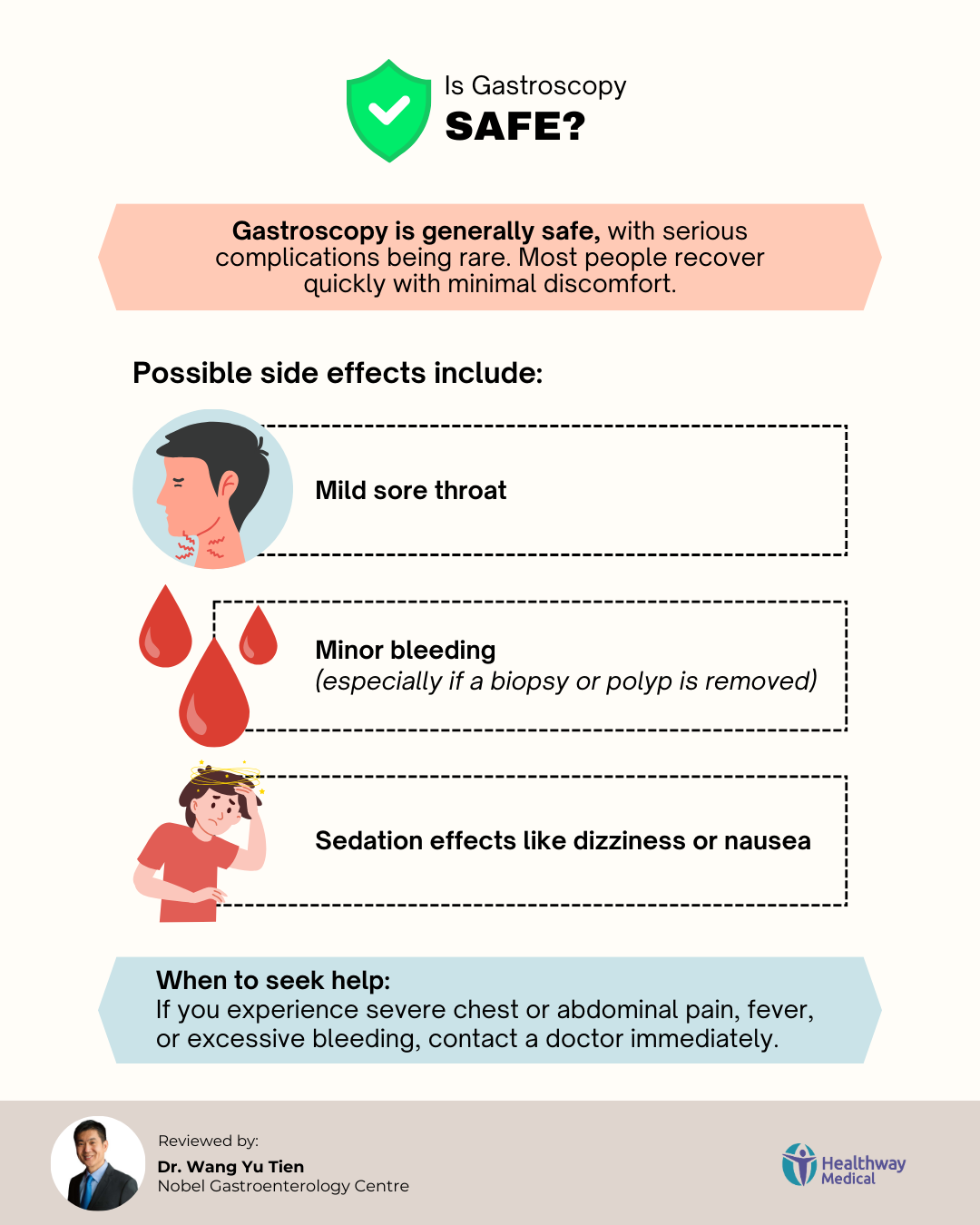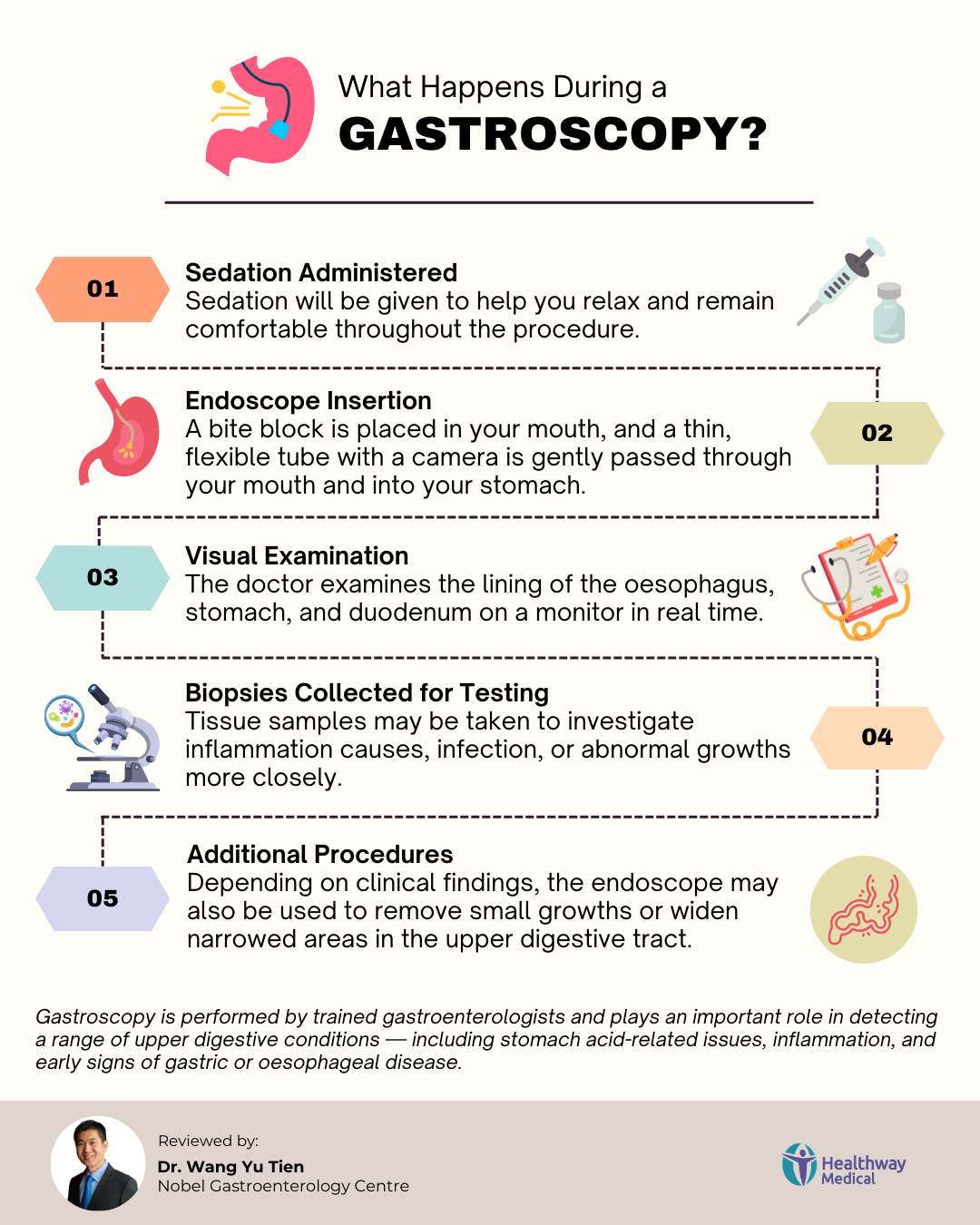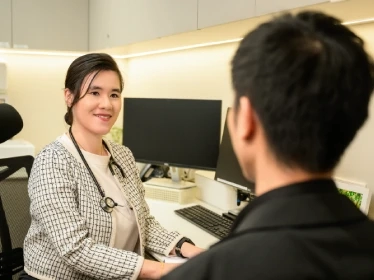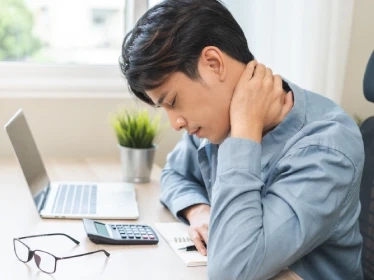What Causes Digestive Issues & How to Improve Stomach Health

Digestive issues can be difficult to pin down. Symptoms like bloating, gastric discomfort or acid reflux might come and go, often without a clear cause. Yet behind these signs could be deeper concerns affecting your stomach or upper digestive tract.
In this guide, we take a closer look at what might trigger these symptoms, when it may be worth investigating further, and how screening procedures such as gastroscopy can support early assessment and long-term stomach health.
Why Early Health Screening Matters
Certain digestive conditions, including stomach or oesophageal cancer, can progress quietly in their early stages. Without clear symptoms, they often go unnoticed until discomfort becomes more severe or complications develop.
This is also why people often dismiss early signs. Mild gastric symptoms might seem to come and go, and it’s easy to attribute the causes to stress, diet, or other daily habits. But if issues persist or return without a clear explanation, they could signal something more.
So how do you know when it might be time to take a closer look? While symptoms vary, the following may suggest the need for medical attention:
• Persistent heartburn, which might indicate acid reflux or Gastroesophageal Reflux Disease (GERD)
• Difficulty swallowing
• Bloating, nausea, or indigestion
• Upper abdominal pain
• Vomiting blood or passing black stools
• Persistent throat irritation or coughing
If the above symptoms are familiar to you, it might be worth having them assessed in a more thorough manner. In many cases, doctors would recommend health screening to better understand what’s happening inside your upper digestive tract, even if outward signs seem unclear.
One approach commonly used for this is gastroscopy, a procedure that allows direct visual examination of the oesophagus, stomach, and duodenum. What gastroscopy does is provide a clearer view of the digestive lining, helping doctors detect inflammation, abnormal growths, or early-stage changes that might not be obvious through symptoms alone.
If you're unsure whether this procedure is appropriate for you, a gastroenterologist can help guide the next steps.
What is a Gastroscopy Procedure?
Now that we’ve looked at when gastroscopy might be recommended, let’s take a closer look at what the procedure involves and what you can expect on the day itself.
On the day of the procedure, a mild sedative will be administered before the procedure to support your comfort and ease. Once the sedation takes effect, a thin, flexible tube is gently passed through your mouth to commence the examination. The procedure itself is brief, and most patients are monitored for a short time afterwards before going home.
In some cases, doctors might also collect small tissue samples, known as biopsies, during the examination. These samples are sent for further analysis and can provide additional information if any issues are observed.

What Can Gastroscopy Help Find Out?
Gastroscopy provides a live view of the upper digestive tract, making it easier to spot issues that may not show up through symptoms alone. This makes it useful for identifying certain conditions early, before they become more difficult to manage.
Some of these conditions include:
• Gastritis (inflammation of the stomach lining)
• Peptic ulcers (in the stomach or duodenum)
• GERD and complications such as Barrett’s oesophagus
• Hiatal hernia, if visible during the procedure
• Oesophagitis (inflammation of the oesophagus)
• Polyps or abnormal growths
• Bleeding sources in the upper gastrointestinal (GI) tract
• Infections such as Helicobacter pylori (H. pylori)
• Early symptoms of gastric or oesophageal cancer
By detecting these conditions early, gastroscopy can support timely treatment, help prevent complications, and provide patients with greater clarity about their digestive health.
Who Should Consider Gastroscopy?
Gastroscopy is sometimes recommended even if clear symptoms aren’t present, especially for individuals with specific risk factors or medical histories. This is because certain digestive issues might progress quietly without causing noticeable discomfort at first.
Doctors often consider gastroscopy for individuals who:
• Are over the age of 40
• Have a family history of stomach or oesophageal cancer
• Regularly experience acid reflux or have been diagnosed with GERD
• Have Barrett’s oesophagus or an H. pylori infection
• Have a long history of smoking or alcohol intake
• Use acid-suppressing medications (antacids or proton pump inhibitors) long-term
A gastroenterologist can help determine whether gastroscopy should be included in your routine health checks or diagnostic assessments based on your personal risk factors and clinical history.
What to Expect During a Gastroscopy
If you’ve been asked to go through a gastroscopy procedure, it’s natural to want a clear understanding of what it involves. Gastroscopy is a minimally invasive, same-day test that examines the upper digestive tract in detail. It is commonly used to investigate persistent symptoms or as part of routine screening for early detection.
Here’s what typically happens during a gastroscopy:

How to Prepare for a Gastroscopy
Proper preparation helps ensure the gastroscopy is carried out safely and allows for optimal visualisation of your upper digestive tract. Here’s what to take note of before your procedure:
• Fasting Requirements - You will need to fast for at least six to eight hours before your gastroscopy. This means no eating or drinking, including water, to ensure your stomach is empty during the procedure.
• Medication Management - Inform your doctor of any medications you are currently taking, especially blood thinners, diabetes medications, or antacids. You may be advised to adjust or temporarily pause certain medications.
• Clothing and Personal Items - Wear comfortable, loose-fitting clothing on the day of your procedure. Please avoid wearing jewellery, makeup, or contact lenses.
• Post-procedure Arrangements - As sedation is used, you’ll need to arrange for someone to take you home after the procedure. You should also avoid driving or operating machinery for the rest of the day.
• Recovery and Aftercare – It’s normal to experience throat discomfort, bloating or drowsiness following the procedure. These effects usually pass within a few hours. Follow all post-procedure instructions provided by the attending doctor and health screening staff.
If you have any questions before or after the procedure, our health screening team will guide you through what to expect and address any concerns you might have.
Have Your Gastric Symptoms Assessed Through Gastroscopy
If you’ve been dealing with ongoing gastric discomfort or belong to a higher-risk group, it might be time to consider a more thorough evaluation. Conditions such as gastritis, ulcers or the early stages of stomach cancer might not show obvious signs early on. Without screening, these issues can remain undetected and delay appropriate treatment.
Gastroscopy plays an important role in uncovering what might be contributing to these concerns. By allowing doctors to examine the upper digestive tract directly, it helps identify underlying causes and offers clearer insight into what might otherwise be overlooked. This can support earlier decisions around care and follow-up, even before symptoms become more severe.
At Healthway Screening, gastroscopy is included as part of our Royal Package. This package combines the procedure with cardiac risk screening, detailed blood tests, and other essential checks to give a more comprehensive view of your health.
Ready to Book Your Health Screening Slot?
Call 6811 8686 to schedule a health screening appointment at any of our Healthway Screening Centres listed below:
Healthway Screening @ Capitol
- #B2-17/18/19/20/21, 13 Stamford Road, Singapore 178905
Healthway Screening @ Centrepoint
- 176 Orchard Road #06-03/04, The Centrepoint Singapore 238843
Healthway Screening @ Downtown
- OUE Downtown Gallery 6 Shenton Way #03-11/12/13 Singapore 068815





